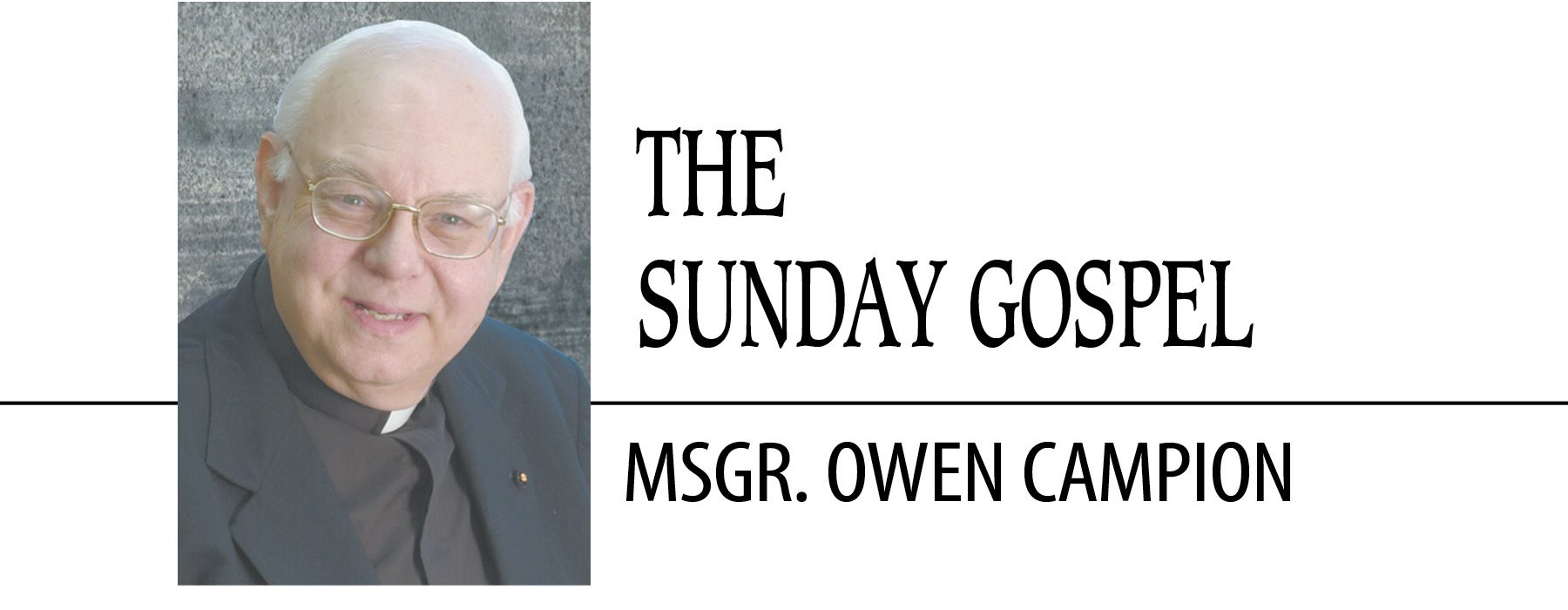January 25, 2020 // The Sunday Gospel
Sin is no match for God
Third Sunday in Ordinary Time
Matthew 4:12-23
The Book of Isaiah supplies this weekend’s first reading. It offers us a powerful lesson.
When this part of Isaiah was written, God’s people were skating on thin ice. They still had their independence, at least after a fashion. Hebrew kings still reigned in the kingdoms of Judah and Israel. The religious, social and political structures all still gave lip service to the ancient religion and to the holy covenant between God and the Chosen People.
Everything, however, was at risk because devotion to the covenant, and obedience to God’s law, were at low ebb. Isaiah loudly warned that disaster was just around the corner, but, he said, the people could rescue themselves by returning to religious faithfulness and by obeying God, as the prophets had taught. They had this potential, this ability within themselves.
They did not sin because they were helpless in the face of temptation. Rather, they were weak because they ignored God. If they were determined, they could be strong and virtuous.
For its second reading, the Church has selected a section from St. Paul’s First Epistle to the Corinthians.
Paul obviously loved the Corinthian Christians. He yearned to see them saintly and eternally with the Lord, but just as obviously they troubled him, because they seemed so attracted to the many vices of their great, worldly and wealthy city. They seemed to be vulnerable to the feelings of competitiveness and insecurity that vex all humans if not checked.
Never willing to accept passivity or indifference, he loudly called the Christians in Corinth to be true to Christ.
He taught a basic message. Earthly reward will pass, more quickly than many might realize. Earthly wisdom is unreliable. True wisdom is to understand the meaning of the cross, and this understanding requires grace, available only to those who earnestly follow the Lord.
St. Matthew’s Gospel supplies the last reading. It is situated in Capernaum, the fishing village located at the northern tip of the Sea of Galilee. Jesus is there, having left Nazareth. His public ministry has begun.
As a center of commerce, albeit very modest commerce, Capernaum saw people come and go. Jesus used this coincidence as an opportunity to encounter many people. He called them to fidelity to God. He repeated for them the admonitions of the ancient Hebrew prophets.
In this place Jesus met Andrew, and then He met Peter, who He renamed Simon. These brothers became the first of the Apostles in the sequence of calling. In time, Christianity was to grow from, and build upon, the Apostles.
It is interesting that the Gospels, such as the case in this reading, refer to these Apostles so specifically by giving their names. The Gospel leaves no doubt whatsoever about their identity since it was vital in the early Church that the teachings of the genuine Apostles be known and be kept intact.
Reflection
These readings remind us of how blind we humans can be and also of how powerful humans can be.
In the first reading, Isaiah criticized the people for their religious listlessness, but he also presumed that, if they wished, they could reverse their wayward paths and turn again to God.
Essentially, the same message was in the second reading, from Paul’s First Epistle to the Corinthians. St. Paul boldly denounced the Corinthians’ sins and quarrels and called them to conversion. He insisted that they could withstand temptation.
We are sinners, but although sin restrains us, we can break away by turning to God and by allowing divine grace to empower us. The impulse to sin, while real, is no match for God or for the heart determined to be with God.
The teachings of the Apostles guide us to our own empowerment and union with the Lord.
The best news. Delivered to your inbox.
Subscribe to our mailing list today.






